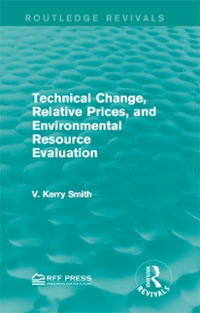Question
Assignment: You have been hired as a policy analyst. Directions: Please write clearly and state any assumptions you are making. Comprehensive answers will be rewarded
Assignment: You have been hired as a policy analyst.
Directions: Please write clearly and state any assumptions you are making. Comprehensive answers will be rewarded in grading.
Use the following information and appropriate diagrams for your answer.
The government is concerned about low employment rates and low earnings of young persons under the age of 25, including those who are no longer in school. It wants to help younger persons get started in the labor market. The government is considering a Social Security payroll tax cut for younger workers. This payroll tax is used to finance Social Security income benefits for retirees. The payroll tax is assessed equally on employers and employees: 6.2% each for a total of 12.4% on the first $133,000 of earnings. (For simplicity, just treat the payroll tax as a unit tax on labor.) The proposal would eliminate this tax until age 25. Young workers would continue to accumulate eligibility for retirement benefits as if they and their employers were making payroll tax payments on their earnings.
A. Analysis. This part of the assignment asks you to describe and discuss the likely effects of this policy in different areas. Please answer all parts. In your answers, you should indicate what additional information would help you answer this question. Assume that, other than the payroll tax, all markets are free and competitive.
1. Impact on the youth labor market (under age 25).
Use a supply and demand diagram of the labor market for youth to illustrate the impact of the repeal of the payroll tax on the take-home wage of young workers and the youth employment level. In your diagram, clearly mark the youth take-home wage when there is a payroll tax as Pt and the wage after the payroll tax has been repealed as Po. Mark the youth employment levels corresponding to these wages as Qt and Qo.
Then answer: Who wins and who loses in this market from the repeal of this tax? What determines how much the winners win and the losers lose? Try to be specific.
2. Related markets.
What closely related markets are likely to be affected by the repeal of the youth payroll tax? Who are the likely winners and losers from changes in those closely related markets? What factors determine whether related markets are affected greatly or only slightly by the payroll tax repeal in the youth labor market?
3. Public finance implications of the Social Security tax cut for those under 25.
Social Security tax payments have flowed into a Federal trust fund for many years. Currently, annual benefit payments to retirees exceed annual payroll tax revenues, so the trust fund is being depleted, and will be exhausted in 15 years. At that time and thereafter, unless other policy actions are taken, annual benefits payments to retirees must be cut below promised benefits so that benefits paid match payroll tax revenues each year.
a. Assuming the government takes no other action, what is the likely effect of suspending the payroll tax for youth on the Social Security program? Who is likely to be most affected?
b. Advocates of the youth payroll tax cut argue that, in the long run, the cut would improve the financial viability of the Social Security program. Is that possible? Explain your answer.
B. Recommendation. Based on your analysis in part A, would you support the youth payroll tax cut? Under what conditions? Explain your position.
Step by Step Solution
There are 3 Steps involved in it
Step: 1

Get Instant Access to Expert-Tailored Solutions
See step-by-step solutions with expert insights and AI powered tools for academic success
Step: 2

Step: 3

Ace Your Homework with AI
Get the answers you need in no time with our AI-driven, step-by-step assistance
Get Started


